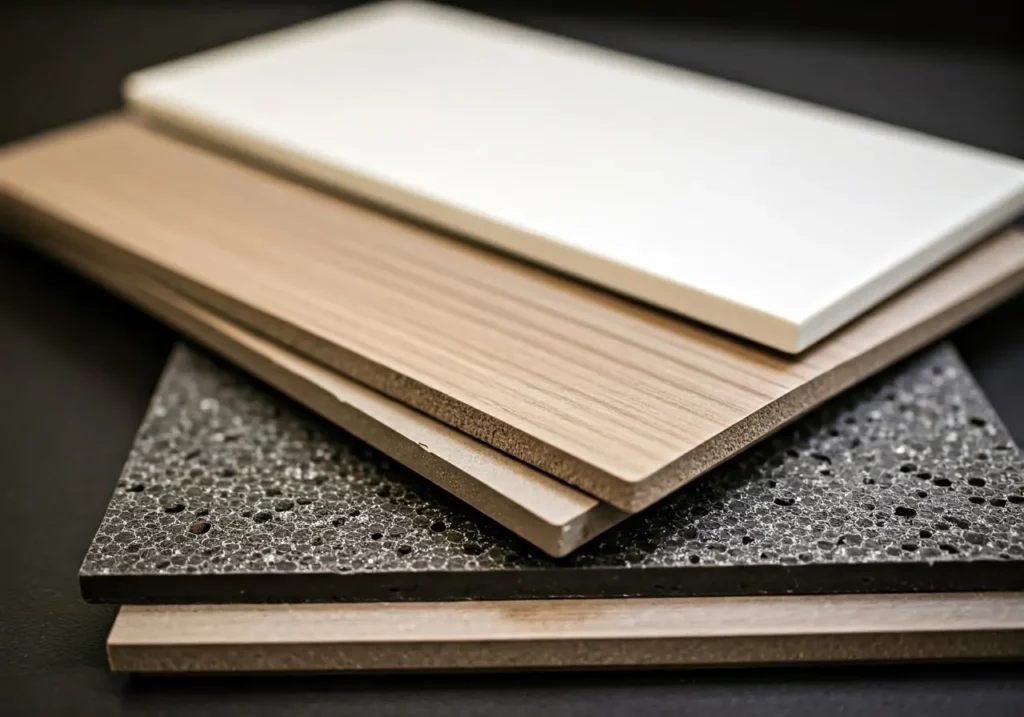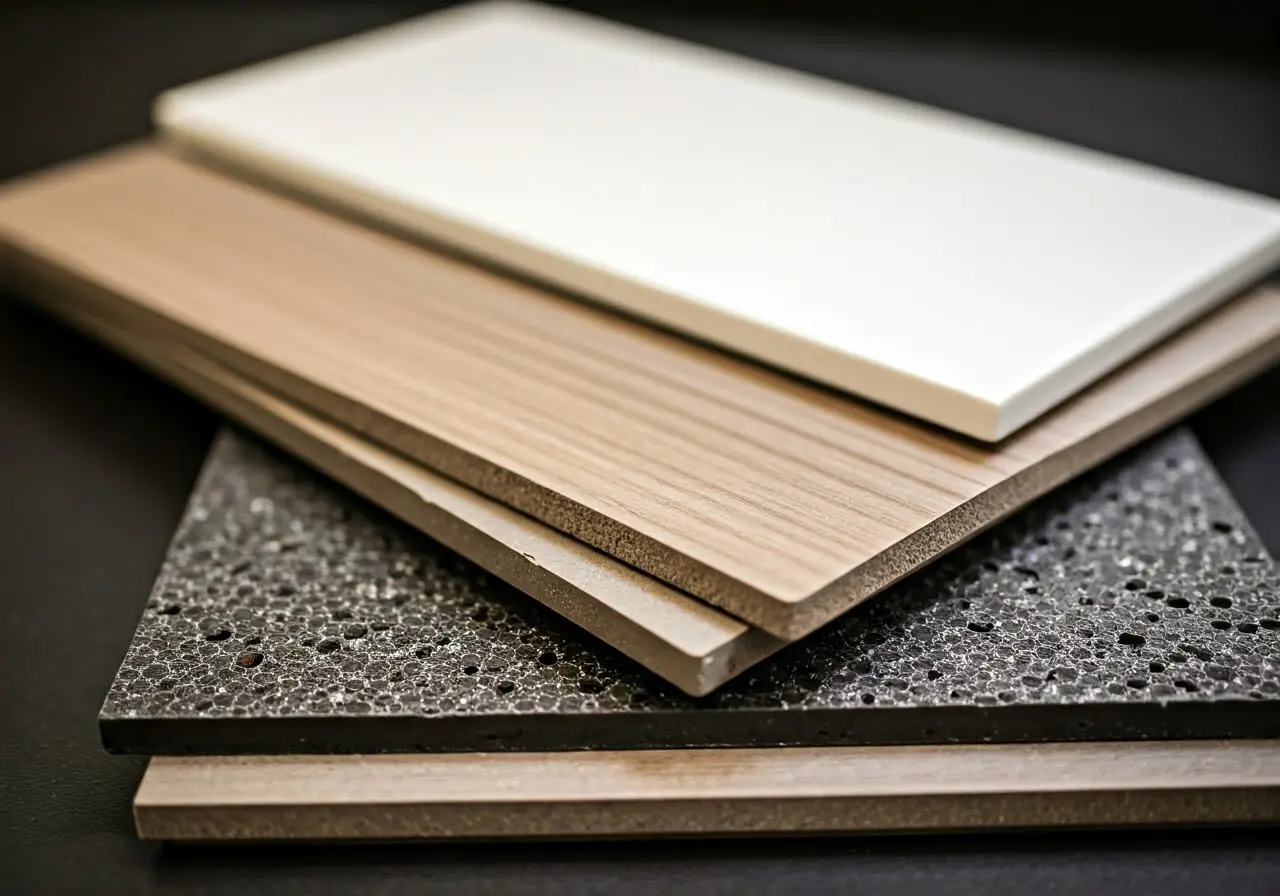When deciding on flooring, especially in high-traffic areas, durability is a key factor to consider. Two popular options, rigid core vinyl and porcelain tiles, often come up in discussions. In this post, we’ll break down the differences and see how each stands up over time.
Understanding Rigid Core Vinyl
Rigid core vinyl is a type of luxury vinyl flooring known for its strength and versatility. It’s constructed with a solid core, making it highly resistant to scratches and dents.
The core of rigid core vinyl flooring, typically composed of a stone plastic composite (SPC), provides notable rigidity and stability. This core is fortified with materials like limestone and stabilizers, enhancing its durability and making it a suitable option for various environments.
What sets rigid core vinyl apart is its ability to maintain its shape under various stresses, such as temperature fluctuations and environmental changes. This outstanding feature allows for installation in diverse climates without the risk of warping.
Additionally, rigid core vinyl’s cost-effectiveness offers homeowners an attractive balance between luxury and affordability. It mimics the look of natural wood or stone beautifully while staying budget-friendly.
Exploring Porcelain Tiles
Porcelain tiles are crafted from refined clay and fired at high temperatures, resulting in a dense and durable material. They are highly favored for their water resistance and elegant look.
Often used in both residential and commercial properties, porcelain tiles are cherished for their classic aesthetic appeal. Their hard-wearing nature is ideal for locations subjected to high impact or heavy foot traffic.
The non-porous surface of porcelain tiles makes them exceptionally resistant to stains and water absorption. This quality ensures long-lasting appearance and integrity, particularly beneficial in moisture-prone areas.
Comparing Durability Under Stress
While both materials are durable, porcelain tiles are often considered more resistant to heavy impacts. Rigid core vinyl, however, offers a forgiving surface that doesn’t crack easily under pressure.
In environments experiencing heavy loads, porcelain tiles will typically outperform due to their high density. However, rigid core vinyl provides an alternative with slightly more give, reducing the occurrence of cracks if an object were dropped.
The impact resistance of rigid core vinyl can be particularly beneficial in family households or commercial settings where falls or spills are more frequent, providing a balance between comfort and resilience.
Resistance to Scratches and Scuffs
Rigid core vinyl typically has a protective wear layer, making it adept at resisting everyday scratches. Porcelain tiles are highly resistant as well but can show signs of wear in high-traffic areas.
The top layers of rigid core vinyl are engineered to withstand abrasions, which is perfect for areas that see frequent activity. Porcelain tiles, despite their hard surface, may develop visible patterns of wear over time, especially in bustling spaces.
Handling Moisture and Water Exposure
Both rigid core vinyl and porcelain tiles boast excellent water resistance. However, porcelain tiles can handle standing water better, making them ideal for bathrooms and kitchens.
A noteworthy attribute of porcelain tiles is their ability to remain unaffected by prolonged water exposure, which makes them the top choice for wetrooms and outdoor use. In comparison, rigid core vinyl performs exceptionally well in standard household settings, combating spills and splashes with ease.
The impermeable surface of porcelain tiles guards against water seepage, offering superior protection in flood-prone areas, while rigid core vinyl’s water-resistant nature ensures it remains a steadfast choice in everyday living spaces.
Ease of Maintenance and Cleaning
Maintenance is straightforward for both materials. Rigid core vinyl’s seamless surface allows for easy cleaning, while porcelain tiles might require grout cleaning from time to time.
For routine cleaning, rigid core vinyl remains simple to upkeep with just a sweep or mop, eliminating the need for harsh chemicals. Porcelain tiles may require a bit more attention, particularly in keeping grout lines promisingly white and crisp.
While periodic sealing can help porcelain tiles retain their luster, rigid core vinyl continues to shine with minimal effort, an attractive quality for many busy homeowners.
Final Thoughts
Both rigid core vinyl and porcelain tiles have their merits when it comes to durability. Your choice will depend on your specific needs, preferences, and budget. Consider the points we’ve discussed to make an informed decision that suits your home best.


